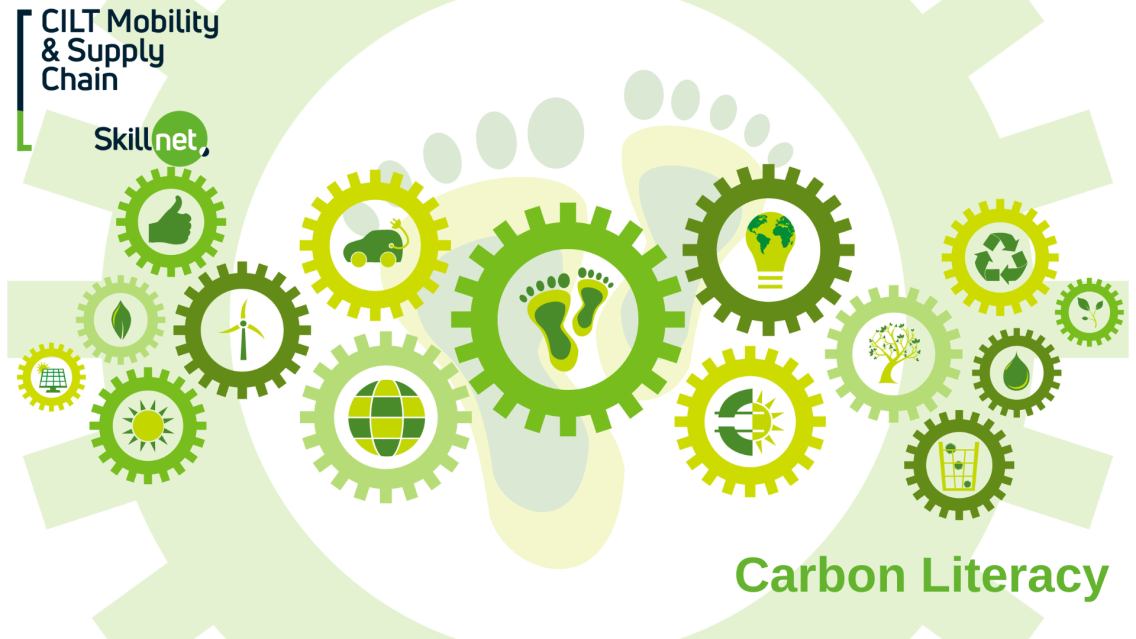Start date: 14 June 2024
Duration: 9:30am - 12:30pm
Location: Online: Microsoft Teams (Half-Day)
Certificate: Digital Badge Certificate awarded by the IEA
Cost: €300
Course code: 19737

Programme overview
The Sustainable Supply Chains: Carbon Literacy course is the first step in the Sustainable Supply Chains training programme which has been developed to provide companies with practical support to reduce their greenhouse gas emissions throughout their supply chains.
Carbon Literacy is a practical and interactive course that trains participants on how to understand their organisation’s direct and indirect greenhouse gas emissions and what steps they will need to take to measure, report and reduce them. The training covers the policy landscape and the urgency of transitioning to low carbon practices. Participants will learn the terminology, basic math's and target setting of carbon emissions and the difference between boundaries and Scope 1, 2 and 3 emissions.
This course is delivered virtually by the Irish Exporters Association (IEA)
The course is significantly subsidised at €300 from €399
Who Is This Course For?
- Senior Management
- Heads of Sustainability and Sustainability Officers
- Supply Chain Managers
- Logistics Managers
- Operations Managers
Course Content
The Carbon Literacy training workshop consists of 8 modules:
Module 1: Introductions and Context
Module 1 includes an overview of the basic science of climate change, the predicted impact and risks for businesses and the scale of the challenge for Ireland and the global community to rapidly reduce emissions to avoid the worst-case scenarios.
Module 2: Europe’s Response
Module 2 outlines the legislative and regulatory landscape for tackling climate change including the European Green Deal and the Climate Action Bill 2021 which legislates for reducing Ireland’s greenhouse gas emissions by 51% by 2030. This will be followed by an overview of the key implications of climate change legislation for businesses and the business case for taking action.
Module 3: Terms and Units
Module 3 outlines the primary greenhouse gases that contribute to global warming and the units of measurement businesses should use to calculate their carbon footprint. This will be followed by a comparison of the carbon impact from different forms of transport and freight.
Module 4: Business Approaches to Decarbonisation
Module 4 outlines approaches businesses can take to decarbonise their operations. The particular focus will be on strategies for companies to measure and reduce their freight
transport emissions throughout the supply chain using a 3-Step plan of ’Measure, Optimise and Reduce’.
Module 5: Measure
Module 5 outlines the key accounting and measurement principles for calculating greenhouse gas emissions. Participants will be trained on the basic mathematics needed to measure carbon emissions from direct and indirect sources. Scope 1, 2 and 3 emissions will be outlined, and participants will be advised on how to set boundaries to account for emissions.
Module 6: Optimise
Module 6 will outline options for companies to make savings on emissions and on costs through better energy efficiency measures and the adoption of renewal energy resources.
Module 7: Restore
Module 7 will outline the steps businesses can take to positively impact the natural environment. Options for carbon offsetting and green investments will be discussed.
Module 8: Next Steps
Module 8 will address the next steps businesses should take including the practical tools and guidelines available to calculate, report and reduce emissions throughout their supply chains.
Learning Outcomes
By the end of the course, participants will:
- Understand the global, EU and national legislation on climate change, key targets and dates and the implications of the Climate Action Bill 2021 for Irish companies.
- Learn of the physical and strategic risks climate change poses to businesses and the urgency of transitioning to low carbon practices.
- Understand the terminology, basic maths and target setting of greenhouse gas emissions.
- Understand the difference between Scope 1, 2 and 3 emissions and what emissions companies are responsible for.
- Learn how to compare the climate impact of different forms of transport and the most sustainable methods for the movement of freight over road, rail, air and sea.
- Learn how to set appropriate and realistic boundaries for carbon accounting.
- Learn of the 3-Step ’Measure, Optimise and Reduce’ plan to put a decarbonisation strategy in place.
- Understand the next steps and practical tools needed to measure, report and reduce emissions.
Course Evaluation, Assessment & Grading
Participants will be asked to complete an online quiz at the end of the training workshop to demonstrate they have understood the key concepts of the course.
Certification
Each participant will be awarded a digital badge certificate awarded by the Irish Exporters Association.
The digital badge contains verifiable data on skills attained and can be downloaded for use in digital CVs, e-portfolios and email signatures and for sharing on social media platforms.
Terms & Conditions
Feel free to read our Terms & Conditions here.



